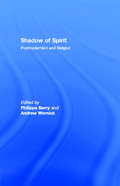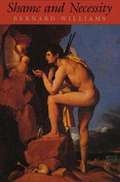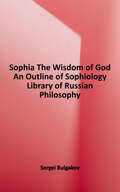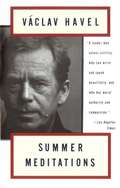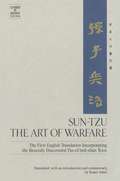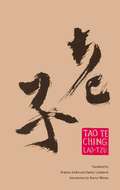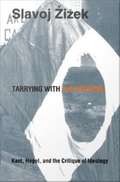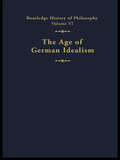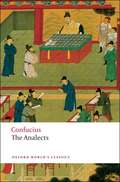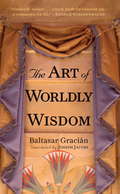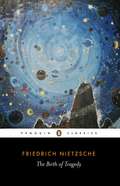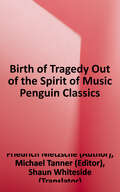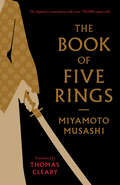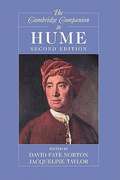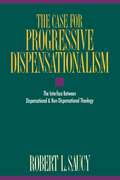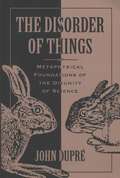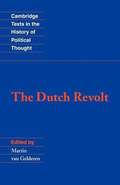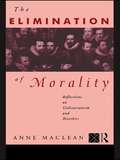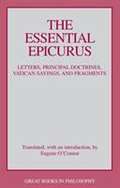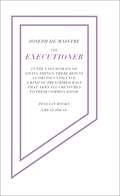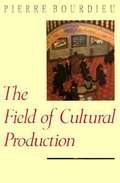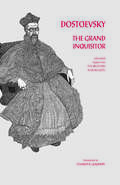- Table View
- List View
Shadow of Spirit: Postmodernism and Religion
by Philippa Berry Andrew WernickBy illuminating the striking affinity between the most innovative aspects of postmodern thought and religious mystical discourse, Shadow of Spirit challenges the long established assumption that western thought is committed to nihilism. This collection of essays by internationally recognised scholars explores the implications of the fascination with the `sacred', `divine' or `infinite' which characterizes much contemporary thought. It shows how these concerns have surfaced in the work of Derrida, Baudrillard, Lyotard, Kristeva, Irigaray and others. Examining the connection between this postmodern `turn' and the current search for a new discourse of ethics and politics, it also stresses the contribution made by feminist thought to this unexpected intellectual direction.
Shame and Necessity: Volume 57 of Sather Classical Lectures
by Bernard WilliamsWe are more like the ancients than we are prepared to acknowledge, and only when this is understood can we properly grasp our most important differences from them, such as our rejection of slavery. The author is a philosopher, but much of his book is directed to writers such as Homer and the tragedians, whom he discusses as poets and not just as materials for philosophy. At the center of his study is the question of how we can understand Greek tragedy at all, when its world is so far from ours. Williams explains how it is that when the ancients speak, they do not merely tell us about themselves, but about ourselves. Shame and Necessity gives a new account of our relations to the Greeks, and helps us to see what ethical ideas we need in order to live in the modern world.
Sophia - The Wisdom of God: An Outline of Sophiology (Esalen Institute Lindisfarne Press Library Of Russian Philosophy)
by Sergei BulgakovThere is a great hunger to recover the feminine aspect of the Divinity. But much searching has left Christians disappointed and seeking the "Goddess" elsewhere. In this brave theological work, Bulgakov shows how the Divine Sophia, in whom all things are created, is present in the Holy Trinity itself and how, as the "creaturely Sophia," she works together with her divine counterpart in the work of the Holy Spirit for the redemption of the world.
Summer Meditations
by Paul Wilson Václav Havel<p>In a book written while he was president of Czechoslovakia, Vaclav Havel combines the same powerful eloquence, moral passion, and abiding wisdom that informed his writing as a dissident and playwright, with a candor unprecedented from one with the broad perspective and infinite responsibility of governing a country. <p>Havel, now president of the Czech Republic, addresses the legacy of Communism as the euphoria of the Velvet Revolution gives way to a more problematic reality. Yet even as he grapples with the challenges of political change, he affirms his belief in a politics motivated by moral responsibility; in an economy tempered by compassion; and in the central roles of art and culture in the transformation of society. Summer Meditations is not only a timely and necessary testament of events in Eastern Europe but a profound reflection upon the nature and practice of politics and a stirring call for morality, civility, and openness in public life throughout the world.</p>
Sun-Tzu: The First English Translation Incorporating the Recently Discovered Yin-ch'ueh-shan Texts (Classics Of Ancient China Ser.)
by Roger T. AmesThe most widely read military classic in human history, newly translated and revised in accordance with newly discovered materials of unprecedented historical significance. Fluid, crisp and rigorously faithful to the original, this new text is destined to stand as the definitive version of this cornerstone work of Classical Chinese. Of compelling importance not only to students of Chinese history and literature, but to all readers interested in the art or the philosophy of war.
Symposium and Phaedrus: Introduction By Richard Rutherford (Dover Thrift Editions: Philosophy)
by PlatoTwo important dialogues offer crucial insights into mystical and aesthetic aspects of Platonic doctrine. Symposium attempts to find the ultimate manifestation of the love that controls the world, leading to mystic union with eternal and supercosmic beauty. Phaedrus discusses the psychology of love, resulting in the concept of the familiar Platonic "forms" as objects of transcendental emotion.
Tao Te Ching (Hackett Classics)
by Burton Watson Lao-Tzu Stanley Lombardo Stephen AddissThis translation captures the terse and enigmatic beauty of the ancient original and resists the tendency toward interpretive paraphrase found in many other editions. Along with the complete translation, Lombardo and Addiss provide one or more key lines from the original Chinese for each of the eighty-one sections, together with a transliteration of the Chinese characters and a glossary commenting on the pronunciation and meaning of each Chinese character displayed. This greatly enhances the reader's appreciation of how the Chinese text works and feels and the different ways it can be translated into English.
Tarrying with the Negative: Kant, Hegel, and the Critique of Ideology
by Slavoj I EkIn the space of barely more than five years, with the publication of four pathbreaking books, Slavoj Zizek has earned the reputation of being one of the most arresting, insightful, and scandalous thinkers in recent memory. Perhaps more than any other single author, his writings have constituted the most compelling evidence available for recognizing Jacques Lacan as the preemient philosopher of our time. In Tarrying with the Negative, Zizek challenges the contemporary critique of ideology, and in doing so opens the way for a new understanding of social conflict, particularly the recent outbursts of nationalism and ethnic struggle. Are we, Zizek asks, confined to a postmodern universe in which truth is reduced to the contingent effect of various discursive practices and where our subjectivity is dispersed through a multitude of ideological positions? No is his answer, and the way out is a return to philosophy. This revisit to German Idealism allows Zizek to recast the critique of ideology as a tool for disclosing the dynamic of our society, a crucial aspect of which is the debate over nationalism, particularly as it has developed in the Balkans--Zizek's home. He brings the debate over nationalism into the sphere of contemporary cultural politics, breaking the impasse centered on nationalisms simultaneously fascistic and anticolonial aspirations. Provocatively, Zizek argues that what drives nationalistic and ethnic antagonism is a collectively driven refusal of our own enjoyment. Using examples from popular culture and high theory to illuminate each other--opera, film noir, capitalist universalism, religious and ethnic fundamentalism--this work testifies to the fact that, far more radically than the postmodern sophists, Kant and Hegel are our contemporaries.
The Age of German Idealism: Routledge History of Philosophy Volume VI (Routledge History of Philosophy #Vol. 6)
by Robert C. Solomon Kathleen M. HigginsThe turn of the nineteenth century marked a rich and exciting explosion of philosophical energy and talent. The enormity of the revolution set off in philosophy by Immanuel Kant was comparable, by Kant's own estimation, with the Copernican Revolution that ended the Middle Ages. The movement he set in motion, the fast-moving and often cantankerous dialectic of `German Idealism', inspired some of the most creative philosophers in modern times: including G.W.F. Hegel and Arthur Schopenhauer as well as those who reacted against Kant - Marx and Kierkegaard, for example.This volume traces the emergence of German Idealism from Kant and his predecessors through the first half of the nineteenth century, ending with the irrationalism of Kierkegaard. It provides a broad, scholarly introduction to this period for students of philosophy and related disciplines, as well as some original interpretations of these authors. Each chapter is written by a distinguished scholar in the field. A glossary of technical terms together with a chronological table of philosophical, scientific and other important cultural events are provided.
The Analects: Oxford World's Classics
by Raymond Dawson Confucius<p>Few individuals have shaped their country's civilization more profoundly than the Master Kong, better-known as Confucius (551-479 BC). His sayings and those of his disciples form the foundation of a distinct social, ethical, and intellectual system. They have retained their freshness and vigor throughout the two and a half millennia of their currency, and are still admired even in today's China. <p>This lively new translation offers clear explanatory notes by one of the foremost scholars of classical Chinese, providing an ideal introduction to the Analects for readers who have no previous knowledge of the Chinese language and philosophical traditions.</p>
The Art of Worldly Wisdom
by Baltasar GracianThis perenially popular book of advice on how to achieve personal and professional success is valued for its timeless insights on how to make one's way in the world. Written in the seventeenth century by a Spanish Jesuit scholar, the teachings are strikingly modern in tone and address universal concerns such as friendship, morality, effective leadership, and how to manage one's emotions. The Art of Worldly Wisdom is for anyone seeking to combine ethical behavior with worldly success.This edition includes an introduction by Willis Barnstone, former Distinguished Professor of Spanish and Comparative Literature at Indiana University. Barnstone, a noted translator, critic, and poet, explores Gracian's background and places him within his historical and literary context. Like Sun Tzu's Art of War, Machiavelli's Prince, and Lao Tzu's Tao Te Ching, Gracian's Art of Worldly Wisdom is one of those rare books that serve as enlightening guides and companions for life.
The Birth of Tragedy: Out of the Spirit of Music
by Friedrich NietzscheNietzsche's first published book, The Birth of Tragedy is a compelling argument for the necessity of art in lifeThis landmark work of criticism is fuelled by Nietzsche's enthusiasms for Greek tragedy, the philosophy of Schopenhauer and the music of Wagner, to whom the book was dedicated. Nietzsche outlined a distinction between two central forces in art: the Apolline, representing beauty and order, and the Dionysiac, a primal or ecstatic reaction to the sublime. He believed the combination of these states produced the highest forms of music and tragic drama, which not only reveal the truth about suffering in life, but also provide a consolation for it. Impassioned and exhilarating in its conviction, The Birth of Tragedy has become a key text in European culture.Translated by Shaun WhitesideEdited by Michael Tanner
The Birth of Tragedy: Out of the Spirit of Music
by Friedrich NietzscheA compelling argument for the necessity for art in life, Nietzsche's first book is fuelled by his enthusiasm for Greek tragedy, for the philosophy of Schopenhauer and for the music of Wagner, to whom this work was dedicated. Nietzsche outlined a distinction between its two central forces- the Apolline, representing beauty and order, and the Dionysiac, a primal or ecstatic reaction to the sublime. He believed the combination of these states produced the highest forms of music and tragic drama, which not only reveal the truth about suffering in life, but also provide a consolation for it. Impassioned and exhilarating in its conviction, The Birth of Tragedy has become a key text in European culture and in literary criticism.
The Book of Five Rings
by Miyamoto Musashi Thomas ClearyThe Book of Five Rings is one of the most insightful texts on the subtle arts of confrontation and victory to emerge from Asian culture. Written not only for martial artists but for anyone who wants to apply the timeless principles of this text to their life, the book analyzes the process of struggle and mastery over conflict that underlies every level of human interaction. The Book of Five Rings was composed in 1643 by the famed duelist and undefeated samurai Miyamoto Musashi. Thomas Cleary's translation is immediately accessible, with an introduction that presents the spiritual background of the warrior tradition. Along with Musashi's text, Cleary translates here another important Japanese classic on leadership and strategy, The Book of Family Traditions on the Art of War by Yagyu Munenori, which highlights the ethical and spiritual insights of Taoism and Zen as they apply to the way of the warrior.
The Cambridge Companion to Hegel
by Frederick C. BeiserFew thinkers are more controversial in the history of philosophy than Hegel. He has been dismissed as a charlatan and obscurantist, but also praised as one of the greatest thinkers in modern philosophy. No one interested in philosophy can afford to ignore him. This volume considers all the major aspects of Hegel's work: epistemology, logic, ethics, political philosophy, aesthetics, philosophy of history, philosophy of religion. Special attention is devoted to problems in the interpretation of Hegel: the unity of the Phenomenology of Spirit; the value of the dialectical method; the status of his logic; the nature of his politics. A final group of chapters treats Hegel's complex historical legacy: the development of Hegelianism and its growth into a left and right wing school; the relation of Hegel and Marx; and the subtle connections between Hegel and contemporary analytic philosophy.
The Cambridge Companion to Heidegger
by Charles B. GuignonMartin Heidegger is now widely recognised alongside Wittgenstein as one of the greatest philosophers of the twentieth century. He redefined the central task of philosophy as the investigation of the nature of being, and has exerted a profound impact on literary theory, theology, psychotherapy, political theory, aesthetics, environmental studies, as well as mainstream philosophy. His thought has contributed to the recent turn to hermeneutics in philosophy and the social sciences, and to current post-modern and post-structuralist developments. The disclosing of his deep involvement in the ideology of Nazism has provoked much debate about the relation of philosophy to politics. This volume contains both overviews of Heidegger's life and works and analysis of his most important work, Being and Time. In addition there are discussions of Heidegger's thought in relation to mysticism, traditional theology, ecology, psychotherapy and the philosophy of language. The volume also contains the first in-depth study of what has been called Heidegger's second greatest work, the Beitrage zur Philosophie.
The Cambridge Companion to Hume
by David Fate Norton Jacqueline TaylorEach Cambridge Companion to a philosophical figure is made up of specially commissioned essays by an international team of scholars, providing students and non-specialists with an introduction to a major philosopher. The series aims to dispel the intimidation that readers may feel when faced with the work of a challenging thinker. David Hume is now considered one of the most important philosophers of the Western world. Although best known for his contributions to the theory of knowledge, metaphysics, and philosophy of religion, Hume also influenced developments in the philosophy of mind, psychology, ethics, political and economic theory, political and social history, and aesthetic theory. The fifteen essays in this volume address all aspects of Hume's thought. The picture of him that emerges is that of a thinker who, though often critical to the point of skepticism, was nonetheless able to build on that skepticism a constructive, viable, and profoundly important view of the world. Also included in this volume are Hume's two brief autobiographies and a bibliography suited to those beginning their study of Hume. This second edition of one our most popular Companions includes six new essays and a new introduction, and the remaining essays have all been updated or revised.
The Case for Progressive Dispensationalism: The Interface Between Dispensational and Non-Dispensational Theology
by Robert SaucyDebate abounds on the future of Israel and Israel's relation to the church, not only between dispensationalists and non-dispensationalists, but among dispensationalists themselves. In the past that debate has sometimes been acrimonious, and proponents of the differing viewpoints have found little common ground. In recent years, however, views have been modified and developed so that the dialogue is increasingly by cooperation and a mutual exploration of diverse ideas. The Case for Progressive Dispensationalism is intended to enlighten the debate in that same irenic spirit. The book is solidly dispensational in perspective in affirming that the Old Testament prophecies are completely fulfilled in the future, that the nation of Israel has a prophetic future, and that Israel is not the church. Dr. Saucy departs from classic dispensationalism, however, in showing that (1) the fulfillment of Old Testament prophecy begins in the present church age, and (2) the church is not a parenthesis in God's program but represents a continuity with the Old Testament messianic program. This modified dispensationalism seeks to satisfy many of the objections of non-dispensational approaches to eschatology while retaining the crucial elements of biblical interpretation that characterize dispensational thought.
The Disorder of Things: Metaphysical Foundations of the Disunity of Science
by John DupreThe great dream of philosophers and scientists for millennia has been to give us a complete account of the order of things. A powerful articulation of such a dream in this century has been found in the idea of a unity of science. With this manifesto, John Dupré systematically attacks the ideal of scientific unity by showing how its underlying assumptions are at odds with the central conclusions of science itself. In its stead, the author gives us a metaphysics much more in keeping with what science tells us about the world. Elegantly written and compellingly argued, this provocative book will be important reading for all philosophers and scholars of science.
The Dutch Revolt
by Martin Van GelderenThis is a major new English-language edition of five central texts in the history of the political thought of the Dutch Revolt. Published between 1570-1590 these texts exemplify the development of the political ideas that motivated and legitimated resistance to Philip II. The introduction locates these ideas in their political and intellectual context and argues that they were inspired by the indigenous legacy of Dutch constitutionalism and civic consciousness.
The Elimination of Morality: Reflections on Utilitarianism and Bioethics
by Anne MacleanFirst published in 1993. Routledge is an imprint of Taylor & Francis, an informa company.
The Essential Epicurus: Letters, Principal Doctrines, Vatican Sayings, and Fragments (Great Books In Philosophy)
by Eugene O'ConnorEpicureanism is commonly regarded as the refined satisfaction of physical desires. As a philosophy, however, it also denoted the striving after an independent state of mind and body, imperturbability, and reliance on sensory data as the true basis of knowledge. Epicurus (ca. 341-271 B.C.) founded one of the most famous and influential philosophical schools of antiquity. In these remains of his vast output of scientific and ethical writings, we can trace Epicurus' views on atomism, physical sensation, duty, morality, the soul, and the nature of the gods.
The Executioner
by Joseph de MaistreSince their first publication in 1821, de Maistre's dark writings have fascinated and appalled critics, with their relentless hatred of the Enlightenment and view of humans as murderous beasts who can only be controlled by the threat of overwhelming punishment. Terrifying and bizarre, The Executioner is a meditation on human evil like no other.Throughout history, some books have changed the world. They have transformed the way we see ourselves - and each other. They have inspired debate, dissent, war and revolution. They have enlightened, outraged, provoked and comforted. They have enriched lives - and destroyed them. Now Penguin brings you the works of the great thinkers, pioneers, radicals and visionaries whose ideas shook civilization and helped make us who we are.
The Field of Cultural Production
by Richard Wolin Pierre Bourdieu Lawrence D. Kritzman Randal Johnson<p>During the last two decades, sociologist Pierre Bourdieu has become a dominant force in cultural activity ranging from taste in music and art to choices in food and lifestyles. <p>The Field of Cultural Production brings together Bourdieu's major essays on art and literature and provides the first introduction to Bourdieu's writings and theory of a cultural field that situates artistic works within the social conditions of their production, circulation, and consumption. <p>Bourdieu develops a highly original approach to the study of literary and artistic works, addressing many of the key issues that have preoccupied literary art and cultural criticism in the last twentieth century: aesthetic value and canonicity, intertextuality, the institutional frameworks of cultural practice, the social role of intellectuals and artists, and structures of literary and artistic authority. <p>Bourdieu elaborates a theory of the cultural field which situates artistic works within the social conditions of their production, circulation, and consumption. He examines the individuals and institutions involved in making cultural products what they are: not only the writers and artists, but also the publishers, critics, dealers, galleries, and academies. He analyzes the structure of the cultural field itself as well as its position within the broader social structures of power. <p>The essays in his volume examine such diverse topics as Flaubert's point of view, Manet's aesthetic revolution, the historical creation of the pure gaze, and the relationship between art and power. <p>The Field of Cultural Production will be of interest to students and scholars from a wide range of disciplines: sociology and social theory, literature, art, and cultural studies.</p>
The Grand Inquisitor: with related chapters from The Brothers Karamazov
by Constance Garnett Fyodor Dostoevsky Charles GuignonThis new edition presents The Grand Inquisitor together with the preceding chapter, Rebellion, and the extended reply offered by Dostoevsky in the following sections, entitled The Russian Monk. By showing how Dostoevsky frames the Grand Inquisitor story in the wider context of the novel, this edition captures the subtlety and power of Dostoevsky's critique of modernity as well as his alternative vision of human fulfillment.
